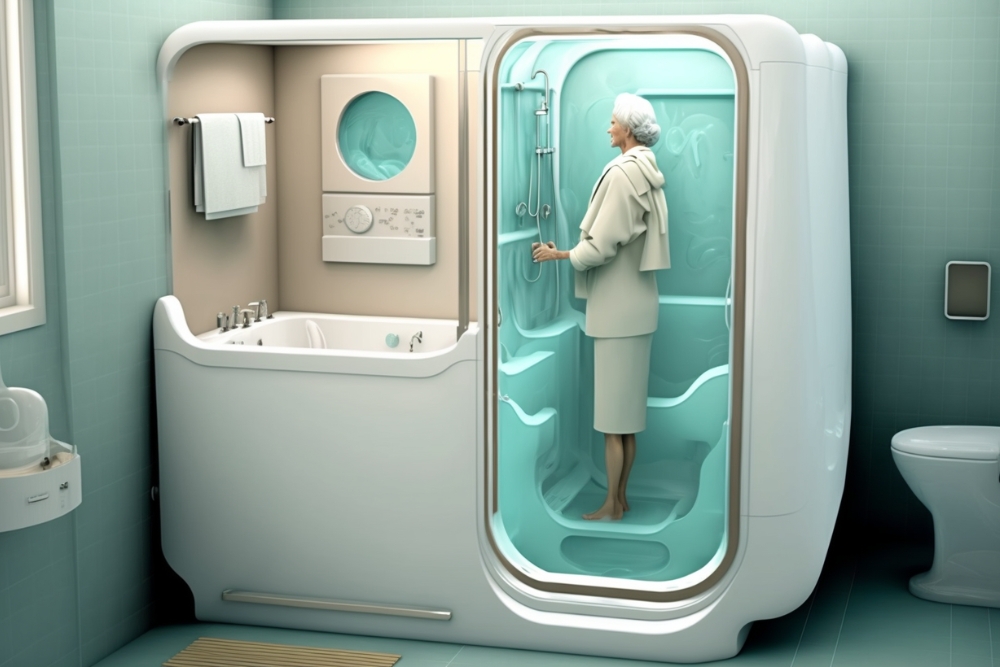When do you qualify for government‑funded bathroom upgrades in the UK
Bathroom renovation grants in the UK provide crucial support for elderly and disabled individuals seeking essential home adaptations. These grants, including the Disabled Facilities Grant, focus on enhancing accessibility and safety, covering installations like walk-in showers and grab rails. Understanding eligibility and application processes is vital for accessing these financial aids to improve independent living.

Understanding Bathroom Grants in the UK
The UK offers several types of bathroom grants through different government channels. The Disabled Facilities Grant (DFG) represents the most comprehensive funding option, providing up to £30,000 in England and Wales for essential home adaptations. This grant covers bathroom modifications such as walk-in showers, accessible toilets, grab rails, and level-access wet rooms. Local councils administer these grants, working alongside occupational therapists to assess individual needs and determine appropriate modifications.
Beyond the DFG, some councils operate their own discretionary grants for bathroom improvements. These local schemes often target specific demographics, such as elderly residents or families with young children living in substandard housing conditions. Additionally, housing associations frequently provide bathroom upgrade programmes for their tenants, funded through government partnerships and social housing investment schemes.
Eligibility for Bathroom Renovation Grants
Qualifying for government-funded bathroom upgrades depends on several key factors. For Disabled Facilities Grants, applicants must demonstrate a disability or medical condition that significantly impacts their ability to use existing bathroom facilities safely. This includes mobility impairments, visual or hearing difficulties, cognitive conditions, or chronic illnesses that affect daily living activities.
Financial eligibility also plays a crucial role, with means testing applied to determine your contribution towards the total cost. Those receiving certain benefits, such as Pension Credit, Income Support, or Universal Credit, typically qualify for maximum grant amounts. Property ownership status matters too – both homeowners and tenants can apply, though tenants require landlord consent for major modifications.
Age-related eligibility exists for some schemes, with specific programmes targeting households containing individuals over 60 or families with disabled children under 19. Your local council’s occupational therapy team conducts assessments to verify that proposed bathroom modifications are necessary and reasonable for your specific circumstances.
Applying for Bathroom Grant Funding
The application process begins with contacting your local council’s housing or social services department. They’ll arrange an initial assessment to evaluate your needs and determine which grant programmes might be suitable. This typically involves a home visit from an occupational therapist who examines your current bathroom setup and discusses your daily living challenges.
Documentation requirements include proof of identity, property ownership or tenancy agreements, financial statements, and medical evidence supporting your application. Your GP, consultant, or other healthcare professionals may need to provide letters detailing how your condition affects bathroom use and why modifications are necessary.
Following approval, councils arrange for qualified contractors to provide quotes for the required work. Most authorities maintain approved contractor lists to ensure quality standards and competitive pricing. The entire process, from application to completion, typically takes 4-8 months, though complex cases may require longer timeframes.
| Grant Type | Provider | Maximum Amount | Key Features |
|---|---|---|---|
| Disabled Facilities Grant | Local Councils | £30,000 (England/Wales) | Comprehensive bathroom adaptations, means-tested |
| Home Improvement Agency Support | Age UK/Local Charities | £5,000-£15,000 | Practical help with applications, trusted traders |
| Housing Association Grants | Social Housing Providers | £10,000-£25,000 | Tenant-specific, often no means testing |
| Veterans Independence Payment | Ministry of Defence | Up to £20,000 | Military veterans with service-related disabilities |
Additional Support and Resources
Beyond primary grant funding, numerous organisations provide supplementary support for bathroom renovations. Age UK offers practical assistance with grant applications and maintains networks of trusted tradespeople specialising in accessible bathroom installations. The Centre for Accessible Environments provides technical guidance on design standards and accessibility requirements.
Charitable organisations like Leonard Cheshire and Motability Foundation operate their own grant schemes for specific circumstances. These programmes often complement government funding, covering additional costs or providing support where statutory grants fall short. Some energy companies also offer bathroom upgrade assistance through their Priority Services Registers for vulnerable customers.
Local Home Improvement Agencies bridge the gap between applicants and councils, offering free advice, application support, and project management services. These organisations prove particularly valuable for elderly or vulnerable individuals who struggle with complex application processes or coordinating multiple contractors and assessments.
Why You Should Learn More About Bathroom Grants Today
Understanding available bathroom grant funding can significantly impact your quality of life and financial wellbeing. Many eligible individuals remain unaware of their entitlements, missing opportunities for substantial government support that could transform their daily living experience. Early exploration of grant options allows time for thorough applications and proper planning of necessary modifications.
Current government policies emphasise independent living and community care, making bathroom accessibility grants a priority area for continued funding. However, application volumes continue rising, potentially leading to longer waiting times or stricter eligibility criteria in future years. Acting now ensures you benefit from current generous funding levels and avoid potential delays.
The bathroom adaptation process requires significant coordination between healthcare professionals, council assessors, and contractors. Starting your research early provides adequate time to gather required documentation, undergo necessary assessments, and plan temporary arrangements during installation periods.
Government-funded bathroom upgrades represent a valuable opportunity to create safer, more accessible living spaces without shouldering the full financial burden. By understanding eligibility criteria, application processes, and available support networks, you can navigate these schemes effectively and secure funding for essential home modifications that enhance your independence and quality of life.




